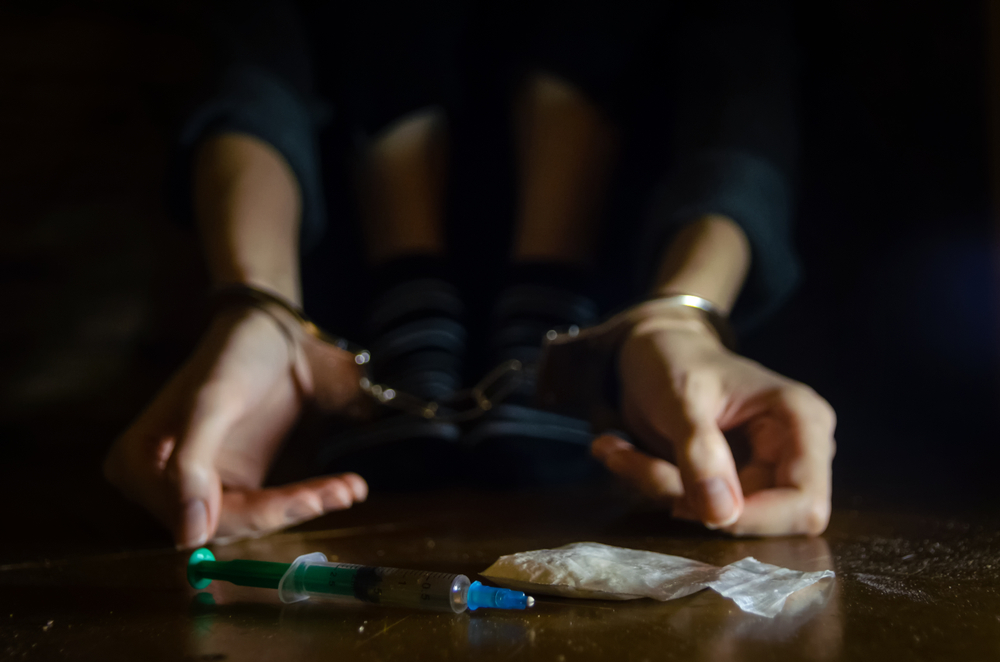
The Effects of Fentanyl Mixed With Xylazine
December 8, 2023
CBD Drug Test Detection Windows & Duration
January 8, 2024
The Effects of Fentanyl Mixed With Xylazine
December 8, 2023
CBD Drug Test Detection Windows & Duration
January 8, 2024
Florida Cocaine Possession: What It Gets You
The legal ramifications of possessing cocaine in the state of Florida can have a major and long-lasting effect on people's lives. It is essential to comprehend the nuances of Florida's cocaine possession laws to raise awareness and encourage wise decision-making. The drug specialists at our Christian drug rehab go into more detail about the legal ramifications of Florida cocaine possession, highlighting the necessity of seeking resources for recovery and illuminating any possible outcomes. Our goal is to offer insightful advice to people who are coping with the legal and physical effects of cocaine abuse.
What Is the Sentence for Drug Possession in Florida?
According to Florida law, possession of any controlled substance is a felony unless a doctor prescribed the medication to the individual. The hundreds of medications in the Florida Comprehensive Drug Abuse Prevention and Control Act are classified as "controlled substances." The federal and state governments regulate drugs, which are arranged into five "schedules".1
Many charges for possession of a controlled substance involve commonly abused prescription drugs, such as Valium, Xanax, OxyContin, and Vicodin. Even with a valid prescription, however, driving under the influence of a controlled substance is illegal. What’s more, using these drugs without a valid prescription is also illegal.
A large number of charges for possession of a controlled substance in Florida involve commonly abused prescription medications, such as painkillers and sedatives. What's more, even if the individual has a valid prescription, driving under the influence of a controlled substance is illegal, as is using these drugs without a valid prescription.
- First-degree felony for drug possession in Florida is punishable by up to 30 years in prison and a fine of up to $10,000.2
- A second-degree felony in Florida is punishable by up to 15 years in prison and a fine of $10,000.2
- A third-degree felony for possession of even a small but detectable amount of any controlled substance in Florida, except marijuana, comes with penalties of up to five years in prison and a fine of up to $5,000. Possession of 20 grams or more of marijuana in Florida is a third-degree felony, while possession of fewer than 20 grams is a first-degree misdemeanor.2
Additional penalties for drug possession in the Sunshine State may include probation, community service, addiction treatment or counseling, random drug testing, and driver’s license suspension.
What Is the Law on Possession of Cocaine in Florida?
Cocaine is considered a Schedule 2 controlled substance under Florida law. This means that cocaine is considered to have a high potential for abuse, which may lead to physical or psychological dependence (addiction). Cocaine possession is a felony in Florida, specifically a third-degree felony.
A person found to be in “actual” or “constructive possession” of cocaine in Florida will be charged with a third-degree felony, which may be punishable by up to 5 years in prison or 5 years of probation, as well as a $5,000 fine. A conviction for Florida cocaine possession can also lead to a two-year driver’s license revocation.
How Much Cocaine Is a Felony in Florida?
In the state of Florida, possessing any amount of cocaine up to 28 grams is considered a third-degree felony, even if the bag or storage container only contains residue of the drug. Possessing 28 grams or more of cocaine is considered trafficking in Florida.
These legal ramifications are current, but to make sure you are fully informed about Florida cocaine possession laws—including the threshold amounts that determine felonies—you should refer to the Florida Statutes or seek legal counsel from a qualified attorney. Depending on factors including the person's criminal history, the purpose of possession, and the existence of aggravating circumstances, the legal ramifications may differ.
Court-Ordered Cocaine Rehab
Court-ordered treatment for cocaine addiction is a type of legal intervention designed to address substance abuse problems as part of the legal consequences for those convicted of drug-related offenses, such as cocaine possession or distribution. Instead of concentrating only on punitive measures, when a court orders addiction treatment, it's usually understood as a chance for the involved parties to confront their substance abuse issues and work toward rehabilitation.
Although the details of court-ordered addiction treatment can vary, common key aspects of court-mandated rehab include:
- Assessment and treatment plan: People may go through an evaluation to find out what kind of care they should receive. Programs for inpatients or outpatients may be involved, contingent on the level of addiction.
- Compliance with treatment orders: The court-ordered treatment plan must be followed. This could entail going to therapy sessions, attending counseling sessions, and following through on any suggested aftercare or support plans.
- Regular monitoring: Regular drug testing may be mandated by courts to guarantee abstinence both during and after the treatment period. Sustaining compliance is frequently necessary to achieve favorable legal results.
- Legal consequences for non-compliance: Court-ordered rehab must be followed, or the individual may face probation violations, more serious legal consequences, or even jail time.
- Rehabilitation focus: Rehabilitation is the main goal of mandatory addiction treatment. Courts and legal professionals acknowledge that people can recover from addiction, and they see treatment as an effective method for addressing the underlying issues that lead to drug abuse.
- Educational components: A few drug programs that are mandated by courts also have educational components that teach participants about addiction, coping mechanisms, and preventing relapses.
- Aftercare and continued support: Aftercare programs or alumni support groups may be offered to individuals who complete court-ordered treatment to assist them in sustaining their sobriety over the long term.
Court-mandated addiction treatment is meant to address both the legal and health factors of substance abuse. Even though it might be mandated by law, many people discover that receiving court-ordered rehab was a significant turning point in their lives and fostered long-term recovery.
Recovering From Cocaine Abuse
If you're struggling with cocaine addiction, know that there is hope and support accessible. Our Christian addiction recovery center is prepared to support you as you embark on a life-changing path toward long-term sobriety. Based on faith-based principles, our caring staff is dedicated to offering efficient, individualized cocaine addiction treatment.
It's a big decision for you to seek treatment, and at Faith in Recovery, we're here to support you in making that decision a reality that will change your life. Give us a call at 888-280-4763 or contact us online to learn more about our cocaine detox and treatment options.
Sources:
- Online Sunshine - The 2023 Florida Statutes
- Hubbs Law - Possession of a Controlled Substance in Florida

